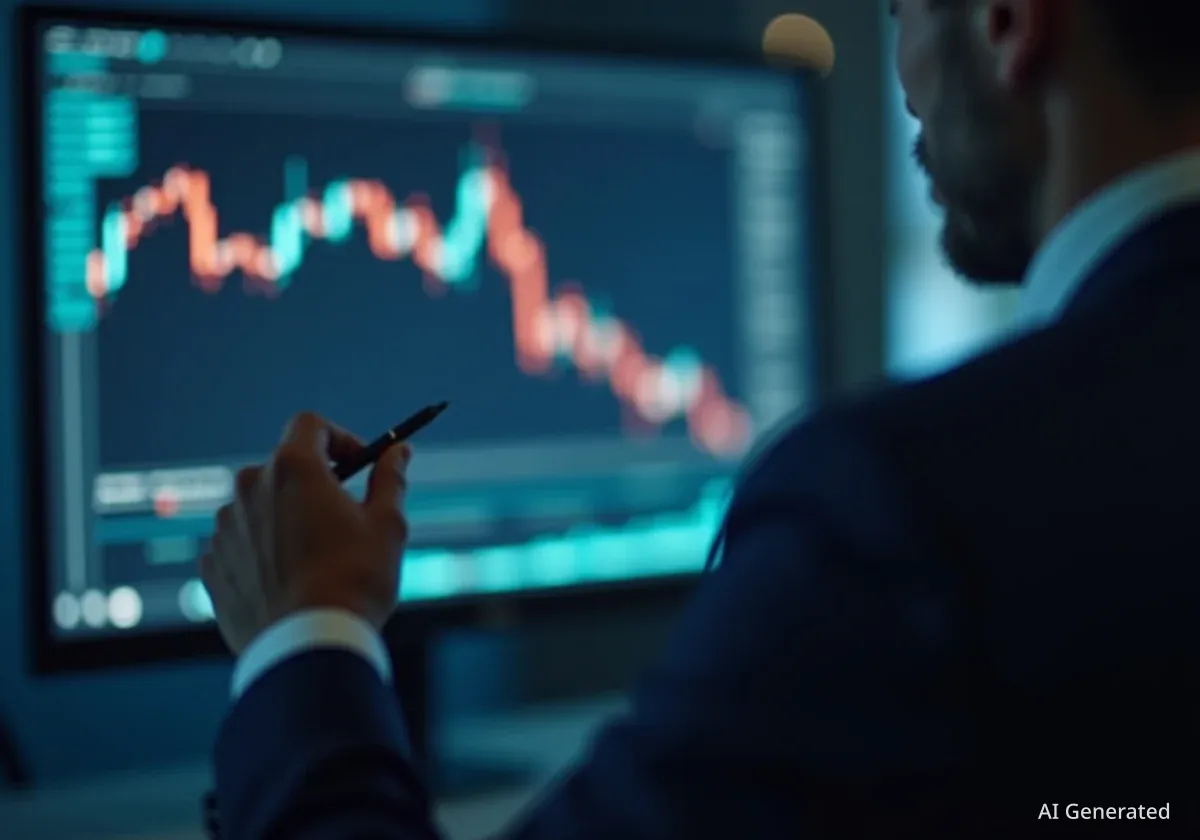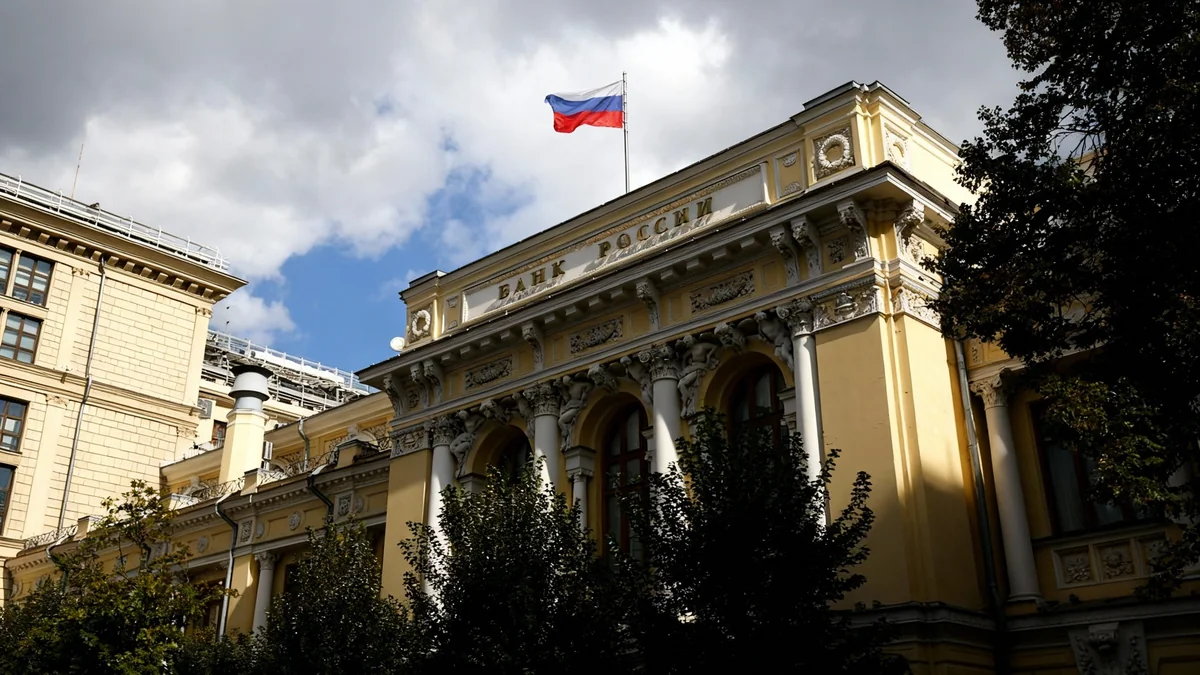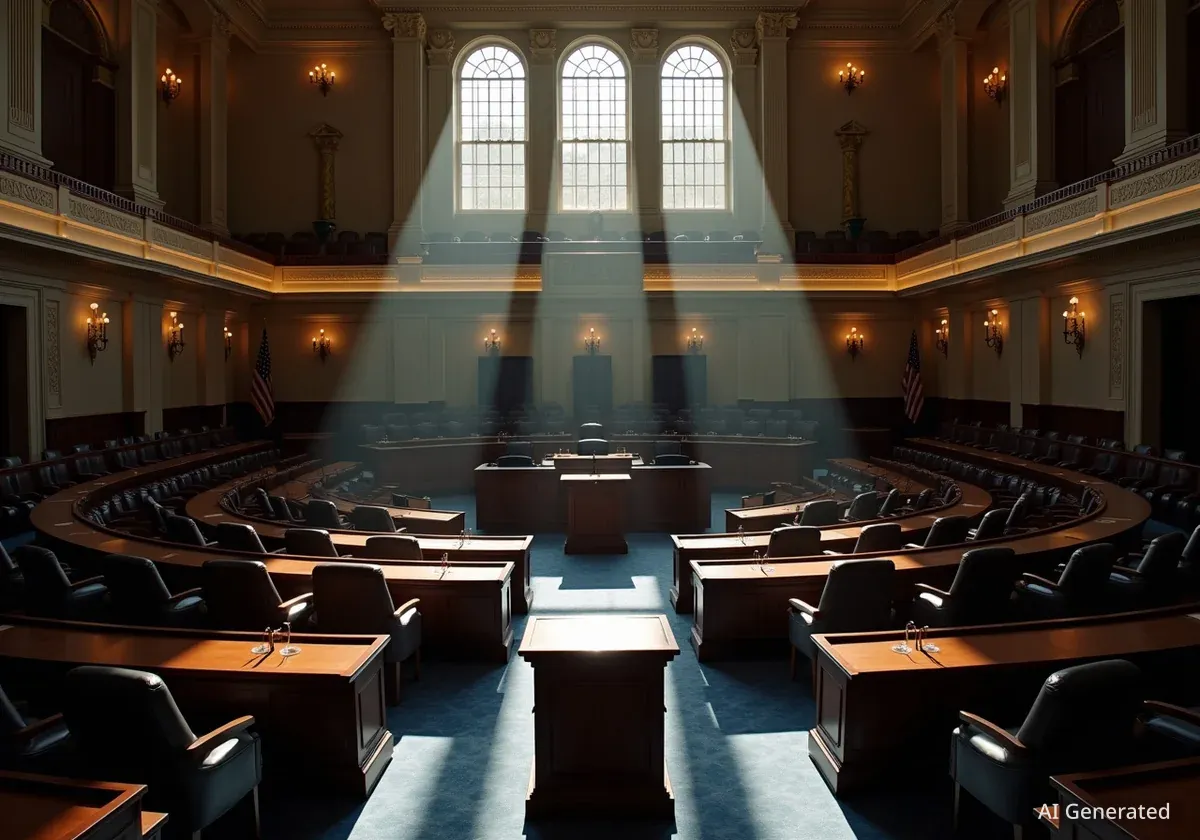The nomination of Brian Quintenz to lead the U.S. Commodity Futures Trading Commission (CFTC) has encountered a significant delay, with reports indicating the Trump administration is now vetting at least three other individuals for the top regulatory post. This development casts uncertainty on the future leadership of a key agency overseeing U.S. derivatives markets.
The situation reportedly involves influence from prominent cryptocurrency industry figures Cameron and Tyler Winklevoss, major donors to the Trump campaign. The White House requested the Senate Agriculture Committee postpone consideration of Quintenz's nomination without providing a public explanation, stalling a process that was expected to conclude in July.
Key Takeaways
- Brian Quintenz's nomination to chair the Commodity Futures Trading Commission (CFTC) has been unexpectedly delayed by the White House.
- At least three new candidates, including former CFTC director Josh Sterling, are now reportedly being considered for the position.
- Reports suggest Gemini co-founders Cameron and Tyler Winklevoss influenced the decision to reconsider Quintenz's nomination.
- The delay leaves the CFTC with minimal leadership, a situation experts warn could pose risks to critical financial markets.
Quintenz Nomination Faces Unexpected Hurdle
Brian Quintenz, a former CFTC commissioner, was nominated by President Donald Trump in February to head the agency. His path to confirmation appeared clear following a hearing before the Senate Agriculture Committee in June.
A final vote was anticipated before the end of July, prior to the chamber's recess. However, the process was abruptly halted when the White House requested the committee delay its consideration of the nominee. This move has left Quintenz's appointment in a state of limbo.
Despite the setback, Quintenz has received public backing from several cryptocurrency and blockchain associations. These groups sent a letter to President Trump advocating for his confirmation, highlighting his experience and suitability for the role.
Background on the CFTC
The Commodity Futures Trading Commission is an independent U.S. government agency that regulates the derivatives markets, which include futures, swaps, and certain kinds of options. Its role is crucial for ensuring market integrity and protecting participants from fraud and manipulation.
New Contenders Emerge for Top Regulatory Post
As Quintenz's nomination stalled, reports from Semafor indicated that the Trump administration has begun vetting other potential candidates to lead the financial regulator. Among the names circulating is Josh Sterling, a former director at the CFTC.
Sterling served in the agency's market participants division from 2019 to 2021, an appointment made during the first Trump administration that did not require a Senate vote. He is currently a partner at the international law firm Milbank.
Two other individuals are also reportedly under consideration:
- Mike Selig: Currently serving as chief counsel for the U.S. Securities and Exchange Commission’s (SEC) crypto task force.
- Tyler Williams: A counselor to Treasury Secretary Scott Bessent and the former global head of policy at Galaxy Digital.
The emergence of these candidates suggests the administration is actively exploring alternatives to Quintenz for leading one of the nation's most important financial regulators.
Influence of Major Crypto Donors Investigated
The unexpected shift in the nomination process is reportedly linked to Cameron and Tyler Winklevoss, the co-founders of the cryptocurrency exchange Gemini. The brothers have become significant financial supporters of Donald Trump's 2024 campaign.
They initially contributed $2 million in Bitcoin and later pledged an additional $21 million in BTC to a pro-Trump political action committee in August. Their financial backing and public support for the president's crypto agenda appear to have granted them influence on policy matters.
Significant Financial Support
The Winklevoss twins' total financial contributions and pledges to pro-Trump efforts have exceeded $23 million, primarily in Bitcoin. This level of support makes them among the most prominent donors from the cryptocurrency industry.
Quintenz himself provided evidence suggesting a conflict with the Winklevoss twins. On September 10, he released text messages exchanged with the brothers on social media. The messages implied that Gemini was seeking specific assurances regarding potential CFTC enforcement actions if Quintenz were to be confirmed as chair.
"The text messages released by Quintenz suggest a direct attempt by the Gemini co-founders to secure favorable regulatory treatment in exchange for their support of his nomination."
The Gemini co-founders were also present at a July signing ceremony for the president's stablecoin bill, known as the GENIUS Act, further highlighting their access and influence within the administration.
Leadership Vacuum at the CFTC Raises Concerns
The ongoing uncertainty over the agency's leadership comes at a critical time. Since the departure of Commissioner Kristin Johnson on September 3, the CFTC has been operating with a skeleton crew, led solely by acting chair Caroline Pham.
This lack of confirmed leadership has raised alarms among market experts. Josh Sterling, one of the potential new candidates, co-authored a Bloomberg Law article in June warning about the dangers of an understaffed regulator.
Sterling and his colleague Amanda Olear wrote that leaving the agency undermanned could lead to neglect of financial markets that are critical to the U.S. economy. They argued that these markets serve as an essential shock absorber for financial risk.
In a separate letter to CFTC and Treasury officials on September 12, Sterling, representing a Milbank client, criticized the agency under Pham for alleged “abuse, mismanagement, and waste.”
As of now, the Senate Agriculture Committee's calendar shows no scheduled hearing to reconsider Quintenz's nomination. The delay leaves the future leadership of the CFTC unresolved, creating a period of instability for the markets it oversees.





